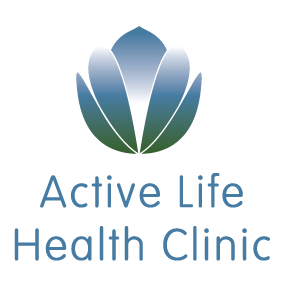 One of my patients emailed me, “What do you think of this?” along with a link to the NY Time article “The Problem With Probiotics.” Are probiotics harmful, and are they effective?
One of my patients emailed me, “What do you think of this?” along with a link to the NY Time article “The Problem With Probiotics.” Are probiotics harmful, and are they effective?
I often don’t hold much value on mainstream media articles about health stuff because they cherry pick and sensationalize. One commenter had what I think is the most on-point comment:
Here is a template for your basic New York Times health article.
“X is all the rage these days; Americans spent $Y million last year on X. However, there is no scientific evidence that X does any good. In fact, there is some evidence that X can be harmful.”
Here is a template for your basic New York Times health article comments section:
“I took X and it left me at death’s door.”
“My second cousin twice removed on my mother’s side took X and it solved all her problems and she lived happily ever after.”
The same goes for many otherwise reputable online media sources. There was recently a story circulated by the media about a Harvard professor (an epidemiologist, not nutritionist or dietitian) who said that coconut oil is “pure poison” and “one of the worst foods you can eat.” Her logic is flawed and based on the fact that it’s high in saturated fat. It is. But not all saturated fats are equal—e.g. vegetable source vs. animal source. Also, it’s important to consider the quality of the oil source, type of oil processing, how the studies are done, etc.
The Canadian media is not immune to errors as well. CBC Marketplace did a story about how many of the popular supplements they tested did not contain the ingredients they were claiming. They had to retract that story when they discovered that the lab they used erred. The lab stated the Emergen-C supplement only had 33% of its claimed quantity of vitamin C and that the GNC protein powder was spiked to appear to have more protein than it actually has. When re-tested later, it was found that that the lab’s definitive claims were wrong and the supplements tested contained what the labels claimed, so CBC Marketplace did a story retraction.
Are probiotics harmful or effective?
The same, I think, for this article on probiotics. We often try to categorize foods, health products, or medicines as “good” or “bad,” “effective” or “ineffective.” But it’s much more complicated than that. With regard to the probiotics issue, I agree that when someone just takes a single strain (there are more strains than we can probably ever study) probiotic supplement ongoing and long-term, they may be throwing their system off balance. We don’t know enough yet to say that’s true or not. The question of are probiotics harmful, however? The only point they made of harm was one contaminated probiotic that “arguably” caused the death of an infant. The infant was premature and born weighing just 3 lbs. The probiotic in question was found to be contaminated and then a recall was set in place. We’ve had many cases of food contamination as well, and we don’t say than no one should ever eat lettuce. Drug recalls have happened because they have had contaminants (here’s a recent one from the College of Pharmacists of BC). This case is tragic, without question. But this sounds like an odd and specific case, not worthy of calling a whole category of supplement “harmful.”
As for effectiveness, there is research to show the benefits of probiotics, but it’s hard to study them and make clear and decisive statements either way. We really still know little about our microbiome. We know it’s huge and diverse. We know we get sick or have problems when it becomes depleted by antibiotic use, with poor diet, and with some diseases. Research likes to study ONE thing for ONE effect. We are so much more complex than that. It’s also why it’s hard to study TCM herbology—we almost always do customized compounded formulations, not just a single herb for each disease.
Practitioners source out, to the best of our ability, high quality supplements, choosing appropriately for each patient. And, we don’t think probiotics are going to cure everything, so we have to combine them with other suitable remedies, diets (including, often, fermented foods that naturally contain a wide range of probiotics), lifestyle recommendations, and treatments. As practitioners, patients, and consumers, we need to be mindful of marketing ploys that promise cures, while also not dismissing all the potential benefits.
So, that’s my long winded answer to the question about this article. I don’t hold much stock in it, and I think that the media is confusing the public with their click-bait articles that use words like “harmful”— or conversely, in other articles, “miraculous”—spuriously. It’s a bit of a pet peeve for me. But I appreciate this question because I think it’s a common one.
